Rating higher on Search Engine Report Pages (SERPs) is the dream of every webmaster. Various SEO factors help determine a website’s rating on the pages. Long-tail keywords are an incremental aspect of a successful SEO strategy. They are capable of driving a large number of high-converting and organic traffic to your site and radically raise profits for your business.
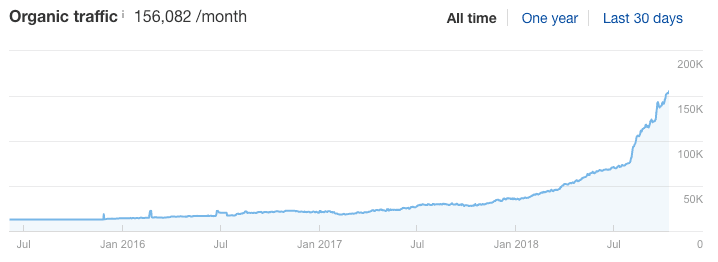
Long tail keywords are considered a holy-grail of SEO. Thus, for a content creator to devise the perfect strategy, its long tail keyword is a significant part of the SEO efforts.
However, before we dig deeper into the details, it’s crucial to understand what long-tail keywords are precise.
What is a long-tail keyword?
Long-tail keywords are the terms that have a low search volume. Despite the general perception, it doesn’t depend on how long or short a keyword is, its converting percentage, or its precision.
Generally, long-tail keywords tend to be more specific and less common than other keywords; they emphasize the niche of your website.
The term “long-tail keyword” originated from Chris Anderson’s book the long tail. Chris states that there is a market for virtually every product. Although the size of the market might be insignificant in certain instances, the internet’s enormity makes your niche blog posts or products profitable nevertheless.
How to find Long-tail keywords?
The next question that might come to your mind is how you can find long-tail keywords?

One of the most straightforward methods of finding long-tail keywords starts with choosing a broad topic and typing it into Google. Once you do that, Google will generate autocomplete suggestions.
These will be more definite and less common searches associated with the general topic for which the user is searching. You can also check the “people also ask” box, which will have further related searches.
The suggestions provide particular insights into the others, less widespread (more specific) searches that people usually make around similar topics.
Nevertheless, collecting the keywords from Google manually can get timewasting since the task would require a lot of time. Instead, using a professional keyword research tool, e.g. Ahrefs, for the task of searching spicy long-tail keywords is a lot more efficient choice.
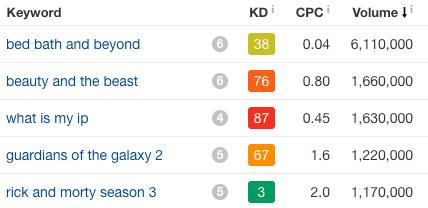
Why should a webmaster focus on Long-tail keywords?
Digital marketing is an ever-growing sector. The competition increases each day, with thousands of websites investing time, money, and effort continually to rank higher on SERPs.
Focusing on SEO is extremely important to achieve a higher rating. Focusing on Long-tail keywords has a major benefit attached to it. It’s that ranking for such keywords is more comfortable compared to common keywords. The longer (more precise) search terms would make it easier to rank higher.
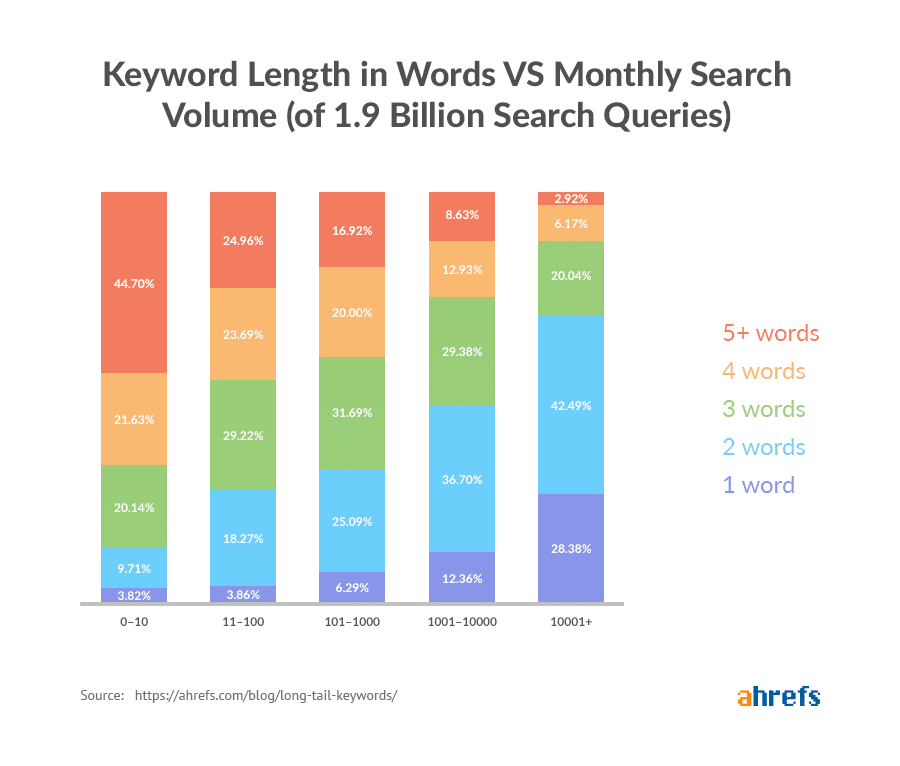
Internet is vast, and it has outreach in every country across the globe. Therefore, long-tail keywords make it easier to search your audience for a specific niche. If you focus on a particular group of long-tail keywords, you can achieve higher organic traffic.
Another major advantage of these keywords is that they are used a lot less in search. Therefore, the visitors that visit your website through them are more likely to buy your product or services.
Long-tail keywords are central to people searching the internet
Google search business is based on one whole idea. It’s to present the users with the required, appropriate, and right information depending on their searches.

You might search like “SEO trends in 2019” because the user is searching specifically for this information. Mobile search optimization has been one of the most prominent SEO trends in 2017 and 2018.
Google in May 2016 increased the maximum character limit in descriptions and SERP titles. It allowed the long tail keywords to play a more central role in mobile site optimization.
Long tail keywords and improved conversion rates
WordStream provided recent research, in which they stated that the average conversion rate for the long tail keywords is around 36%. Although, you should remember that the conversion rate isn’t going to hit 30 overnight.

Many new websites have been using the long-tail keywords to experience a 2-5% conversion rates on their websites, which is exceptional.
Long-tail keywords and market competitiveness
In specific markets, it isn’t easy to rank higher. In certain areas, the market is highly competitive, and large companies with huge budgets dominate the search engine result pages (SERPs). If your website has the same niche, it could get complicated to rank higher on the search pages.
One successful way of carving a name for yourself in a highly competitive market is to be clear about your offer’s services or product. It would drastically impact your rankings. It is where long-tail keywords once again come in handy and help you rank at a better position.
It’s because the posts that are focused on long-tail keywords offer more value to the reader. They have a higher role than merely strengthening your SEO efforts. Keyword research is a technique of mining data that powers the rest of your marketing efforts.
Your mission in defining Long-tail keywords
A digital marketer must focus on its SEO efforts. Therefore, you should emphasize the quality of your products, website, or blog by choosing the right long-tail keywords. The terms you can use to describe your mission can be attractively used to concentrate on your SEO approach.
The next question is how to create the perfect list of long-tail keywords that would help you rank higher on SERPs. It would include the creator considering some questions before coming up with the right words. The questions could include:-
- What exactly are the visitors looking for?
- What are the search terms that they might use?
- What terms might they use for the services or products?
- What should the audience expect of you?
Thinking of the main keywords that you would want to base the content around can be easier; however, choosing the ideal long-tail keywords can be challenging.
Various tools can provide you with a convenient solution. The tools are designed to assist you in using the linked vital phrases to support your text. They can also be used to search for long-tail keywords.
Top 5 Tools to find great long-tail keywords
Without the right tools, finding the correct long-tail keywords can be difficult. These are the 5 best tools that will help you find and make the most of these valuable keywords.
SEMrush

SEMrush is the most powerful SEO tool ever and the ultimate keyword research tool. You will find its Keyword Magic Tool especially useful when looking for long-tail keywords. It helps you find long-tail keywords related to a seed keyword and gives you metrics like search volume, keyword difficulty, and CPC. With SEMrush, you can also gain insights into what strategy your competitors are using, which in turn helps you identify the gap in the market and create the content that the audience is missing.
You can have free access to Semrush, however, paid subscriptions begin at $119.95/month, which unlock its full potential. It is the perfect tool for enterprise-level SEO, offering in-depth analytics and competitor breakdowns.
Ahrefs Keywords Explorer

Ahrefs is well-known for its powerful keyword research features (particularly for competitor and search behavior insights). Their Keywords Explorer tool is made to find long-tail keywords by analyzing parent topics, suggesting question-based keywords, and finding more keywords for which top-ranking pages are targeting. This tool processes more than 7 billion keywords, with insights including click percentage split between organic SERP results and historical SERP data.
The Lite plan costs $99 per month and includes the most necessary keyword research functions. Businesses who want a deep dive into SEO will find everything they need in the higher tiers, which include more data and advanced tools.
KWFinder
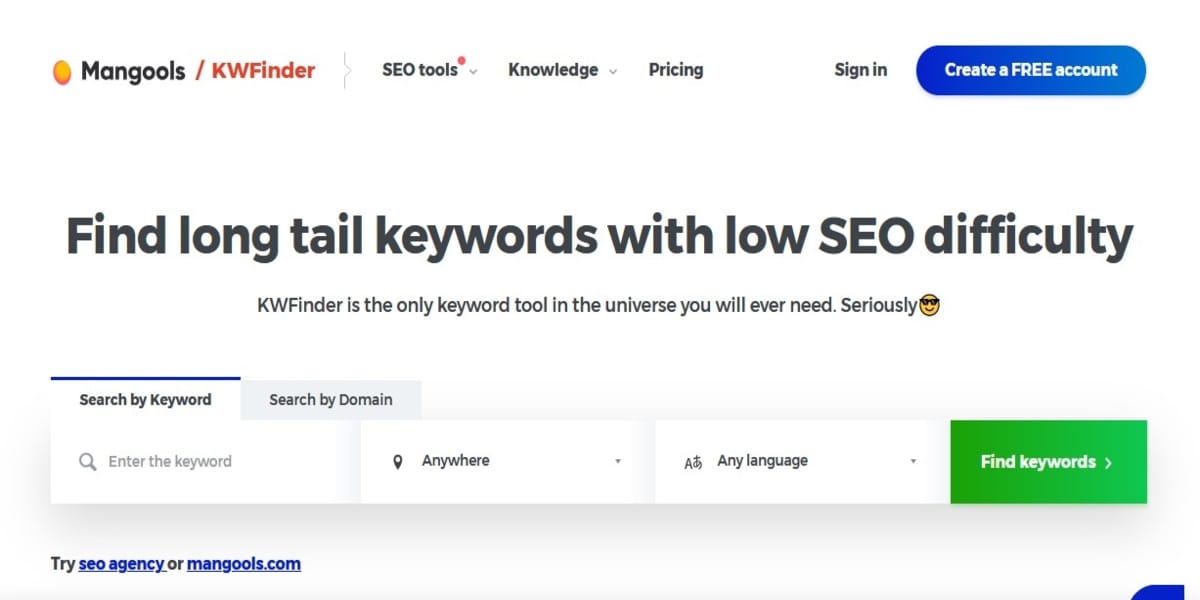
KWFinder is specifically designed for keyword research, making it a favorite among SEO guys. It has a very simple interface and is reasonably priced, starting from $29.90 per month. KWFinder lets you discover long-tail keywords, search volume, keyword difficulty, and location-based searches. Along with competitor rankings, this tool will also help you analyze SERPs.
For those looking for a streamlined, economical choice centered wholly on keyword research, KWFinder is great, particularly for users on a budget — it differs from other much broader SEO platforms.
Answer The Public

Answer The Public is an interesting tool that provides long-tail keyword ideas based on common questions people often ask regarding your seed keyword across social media, blogs, and forums. You will also be able to get comparison keywords, which are useful for creating comparison content. Although Answer The Public doesn’t provide search volume data, it is free and a great starting point for content ideas.
Ubersuggest

Ubersuggest is another affordable tool that pulls data from Google Suggest to generate keyword ideas. It is available in both free and paid modes to serve all kinds of people. Ubersuggest helps you with content ideas, keyword difficulty scores, and your competitors. This is especially useful if you need a simple yet powerful SEO tool that doesn’t cost an arm and a leg.
Conclusion
Long-tail keywords are necessary for increasing the visibility of your website and attracting the right kind of traffic. Using tools such as Semrush, Ahrefs, KWFinder, Answer The Public, Ubersuggest, etc. you can find long-tail keywords, which align with your content strategy. If you are an SEO expert or just starting out, these tools give you a paradigm for how to run successful SEO campaigns.

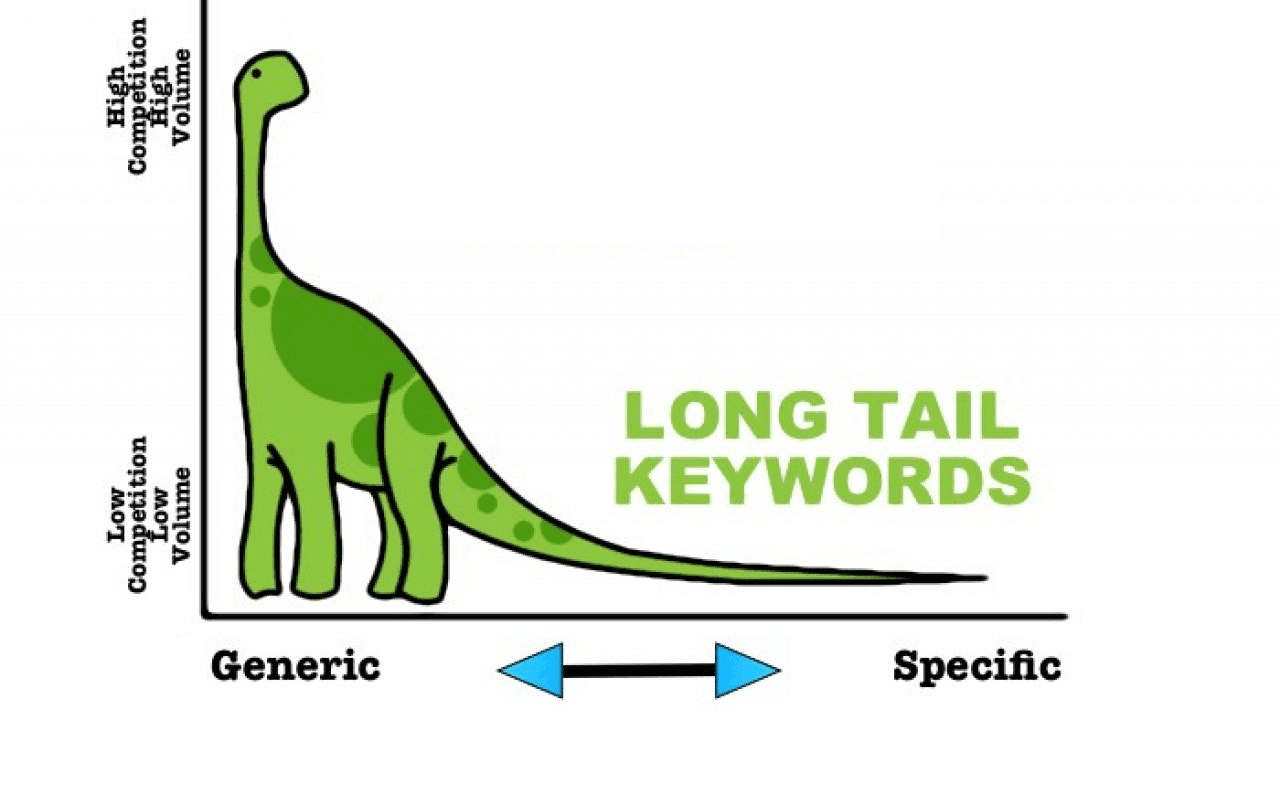

PPC VS SEO: Which One Should You Go for?
What is link juice in SEO, and how can you acquire it?